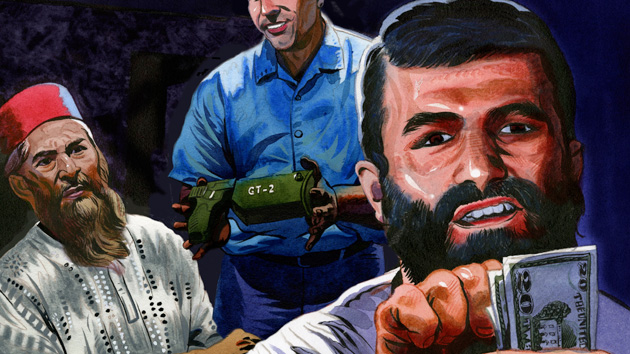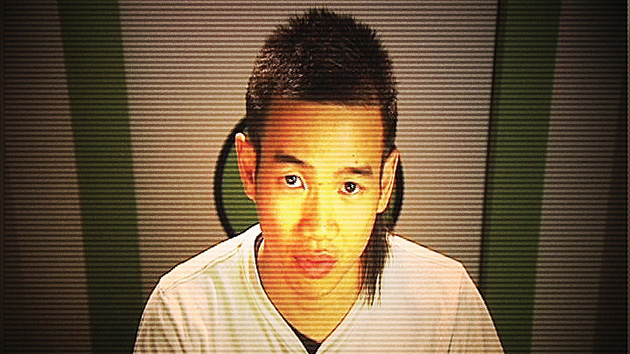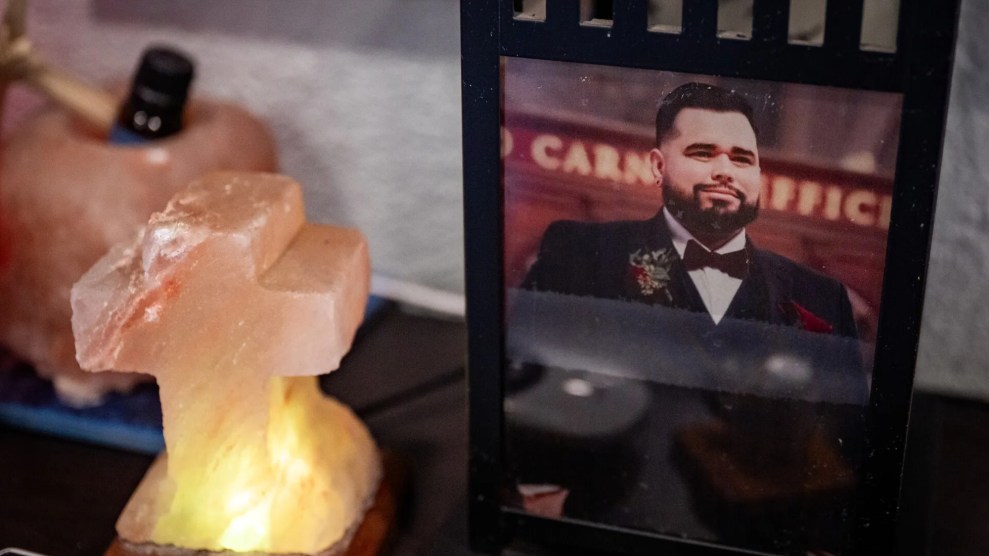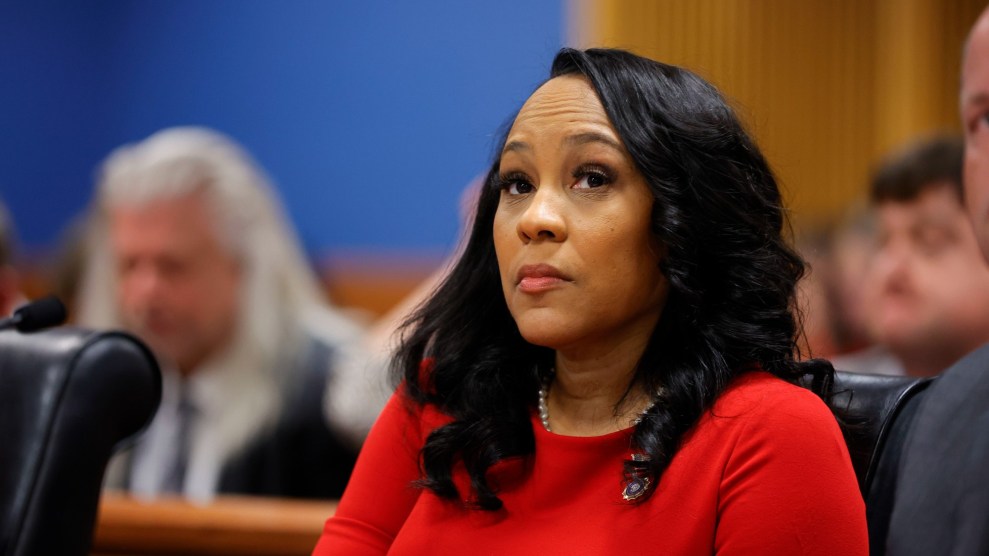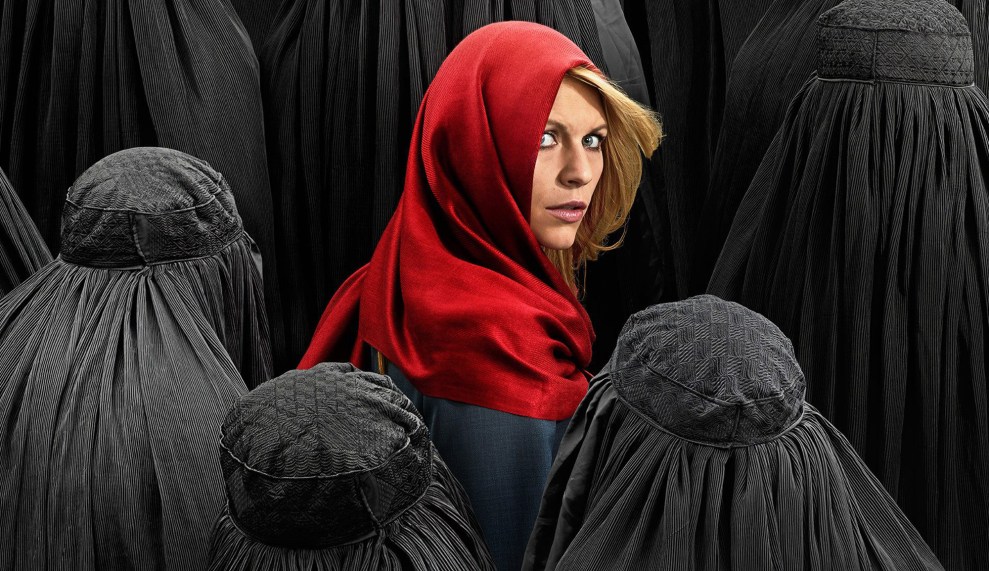
Claire Danes stars alongside Damien Lewis in Showtime's HomelandShowtime
Showtime’s hot new psychodrama, Homeland, stars Claire Danes as Carrie Mathison, a CIA agent investigating a returning US Marine named Nicholas Brody (Damian Lewis). While held in captivity by Al Qaeda in Iraq, Brody has converted to Islam. The show’s central tension revolves around whether he has “turned”—into someone capable of carrying out a terrorist act. Just five episodes in, Homeland is Showtime’s biggest hit in recent memory; the channel has already announced plans to renew for a second season.
The series is the brainchild of Howard Gordon and Alex Gansa, tight friends and cowriters on 24, Fox’s post-9/11 adrenaline-fest in which fictional agent Jack Bauer uses whatever means necessary to save America from the evil terrorists. Homeland employs a more nuanced touch, prompting viewers to consider troublesome aspects of the war on terror that 24 largely ignored. I picked up my red telephone last week to interrogate Gordon and Gansa about Islamophobia, why they sought out Claire Danes, and their lingering regrets about 24.
Mother Jones: So, what inspired Homeland?
Alex Gansa: The show, Hatufim, about a couple of POWs who are returned after 17 years of captivity has been a huge hit in Israel. We read the pilot and thought, “My God, this is fantastic!” And we were hoping to just change a few names and turn it into an American version. Unfortunately, it took a lot more work than that.
MJ: What’s the difference in writing for Showtime as opposed to Fox?
AG: For us, what makes the show great is the ambiguity—the questioning of the voyeurism, the everybody watching each other and trying to discern what their motives are. There just isn’t the appetite or the patience on network television to do something like that. And just the obvious language and sexual stuff. You’re just freer, and it becomes sort of more like little independent features rather than, you know, stories that are broken up by commercials every 10 minutes.
MJ: Compare Carrie Mathison with Jack Bauer.
Howard Gordon: Carrie is in many ways a more complex character. Jack’s a father, he’s a husband, he’s a secret agent who doesn’t suffer fools and kind of punches them in the nose when he doesn’t get his way. Carrie doesn’t have that advantage. She’s younger, she’s a woman, she’s got a mood disorder, and as effective as she’s been, she’s also someone who’s been marginalized by her behavior.
MJ: Why Claire Danes?
AG: We conceived the character around Claire, not knowing that we would get her. We were looking to find a younger actress who could portray someone who was both unbalanced and confident at the same time. And that is really tricky. Claire had never done anything like that before, but we’d been fans of hers forever and were just convinced this was a role that was extremely well suited to her abilities.
HG: The young part of that is actually really important. Her life is really on the edge because she has denied herself all those things for her own obsessions and because of her own pathology—like a husband, like a loving relationship—she has to be young enough to believe that that’s still a possibility ahead of her. The die has not been completely cast yet.
MJ: Homeland develops at a much slower pace than 24. How come?
AG: I think we’re in a period of really questioning how we’re going to prosecute the war on terror, how we’re going to project our power overseas, how we’re going to deal with this threat that’s never going to go away. So, I think whereas 24 was an action-thriller response to 9/11, this is a psychological response to where the country is 10 years later.
MJ: Why was it important to have Brody come home as a Muslim?
HG: We wanted to make the audience test their own perceptions and assumptions. And that seemed like an interesting touchstone.
AG: We also wanted to challenge the assumption that there was a direct linkage between the religion and the endeavor of terrorism.
HG: Or not a linkage—test people’s preconceptions.
MJ: Watching Homeland, I found myself rooting for Carrie to continue her illegal surveillance of Brody’s home. I realize it’s just a TV show. But do you guys think about how your work might alter people’s real-life attitudes?
HG: I think because we see the terrible price exacted on Carrie, at the very least it addresses some of the complexity. All of us can imagine being violated in the way Carrie’s violating that family, and it doesn’t feel good.
AG: That’s what we try to do in those two sexual encounters between Brody and his wife and Carrie watching. We tried to put Carrie in the most awkward, uncomfortable position we could put her in. That puts the audience in the same position: You are violating someone’s privacy. Without being doctrinaire, we’re really trying to show what it means to watch somebody all the time. What are you learning, and are you learning anything that’s relevant?
MJ: So what type of research did you guys do for Homeland?
AG: Howard had existed in this world for the last eight years and I worked on 24 for the last two seasons, so we were conversant with the issues and what it means to be an intelligence officer. However, the CIA was a whole new world to us. So we read a lot of stuff; we read that wonderful Tim Weiner book Legacy of Ashes. We have consultants currently at the CIA who helped us tremendously. We did as much reading, as much research as was physically possible before we had to start writing. Talked to a lot of people.
HA: Has the rise of Islamophobia in the past year or two affected your writing of Muslim characters?
AG: You know, what’s come out lately, about the Saudi ambassador being targeted—I so wish we had thought of that! There is so much Muslim–on–Muslim violence in the world, and there would have been something kind of great about putting our characters in the middle of that; maybe we’ll do it next year. There are Muslim characters on the show this year who are villains, but there also happens to be a white American marine who may be part of that as well.
HG: There’s also a Muslim character you’ve not met yet, a CIA agent. Which may or may not answer your question.
AG: How do you think there’s heightened Islamophobia in the US over the last year?
MJ: I think what sparked it was that Ground Zero Mosque thing, and it’s kind of turned into, at least for the GOP, the new normal: Herman Cain saying he wouldn’t appoint a Muslim to his cabinet; Newt Gingrich saying that we should give Muslims a specific test on their loyalty to America.
HG: A lot of the stuff you’re talking about is the subject matter of episode eight.
AG: On the other hand, you know, it’s so funny—it’s so interesting—cause, you know, I thought Chris Christie was amazing about it. [New Jersey’s governor publicly ridiculed the anti-Shariah zealots in August.] I, being a Pollyanna, tend to look at that as being the hopeful sign. I haven’t been paying attention to these Republican debates because they don’t feel grounded in any reality when they’re talking about the economy. I mean, these people are nuts.
MJ: Yeah, they get their economic plans from Sim City. So, how were you guys raised, politically speaking?
AG: When I was 12, one of my heroes was Richard Nixon. I don’t know why exactly, but you know, my mom was quite conservative. Her family were white Russians, and were sort of booted out of Russia in 1917, so she grew up in China and always held a very strong and fearful attitude towards a) weakness and b) towards any kind of socialism. My dad was quite liberal and was actually arrested protesting the Iraq War. I had people speaking in both ears. It certainly affected the staff of 24, because there were a lot of really dyed-in-the-wool libertarians there, and it led to some heated discussions in the story room. But I’m definitely way left of center now.
HG: I have no opinion. I feel like a centrist, an issue–specific person. I’m pretty conservative fiscally and pretty liberal on social issues. Um, even that’s not true. Honestly, I’m kind of apolitical. I mean, my mother voted for McGovern and my father probably voted for Nixon.
AG: It’s interesting that Obama is presiding over the decimation of Al Qaeda leadership—you know, you have these drone attacks. By the way, it’s being debated in the CIA, according to our consultants: Here we’re not allowed to carry out any sort of coercion or harsh interrogation techniques anymore, but we’re allowed to fly over somebody’s village, without due process, and kill them all? It’s a very interesting dialog.
MJ: So, were you surprised by 24‘s cultural impact?
HG: Oh, absolutely. I’m surprised right now by the impact Homeland seems to be having so quickly out of the gate. But 24 was absolutely stunning. Everyone from Rush Limbaugh to Bill Clinton would talk about it, and we knew they were among our fans. I guess when people used it as propaganda for their own ideas—you know, when Justice Scalia mentioned Jack Bauer—that would make me feel uncomfortable.
MJ: Did it give you pause?
HG: No. I think the one thing that we all felt very confident about—although we had a vigorous behind–the–scenes debate—was at what point are we loyal and beholden to good storytelling, and at what level do you hold yourself accountable for things like stoking Islamophobia or promoting torture as a policy? There were just certain things that we needed to portray in order to make it feel thrilling—and real, even.
MJ: Do you have these debates at Homeland?
HG: Yeah. I would say they’re not quite as heated, because I think we’ve just gotten older, wouldn’t you say?
AG: Well…Everybody here tilts left of center more than they did on 24. But I think that if there are debates to be had, it’s constantly trying to give our characters motivations and psychology that are understandable and not two dimensional. If Brody carries out an attack, we want to make sure everybody understands why.
MJ: Did you aim for a liberal writing staff?
AG: No, we picked the best writers we could find. I would have picked Rush Limbaugh if he could write a good episode!
MJ: Looking back, do you have any regrets about 24?
HG: I’ve asked myself that question. I’ve never been asked it.
AG: I wrote a couple really shitty lines!
HG: I actually do have regrets about one particular moment, which had more to do with the promotion of the show. In season two, the story involved a Muslim American family, and the father and the mother—and the son—were party to a terror plot. It was sort of a purple conceit in a way. But it was maybe a year and a half after 9/11, and on the 405 freeway there’s this giant electronic billboard, and I think the line was: “They could be next door.” The writers and the producers were not party to that campaign, but we quickly put an end to it, and realized how dangerous and potentially incendiary this show could be. And I think our awareness of that changed the way we approached the series. So I guess you could call it a regret, but it was really an epiphany.
